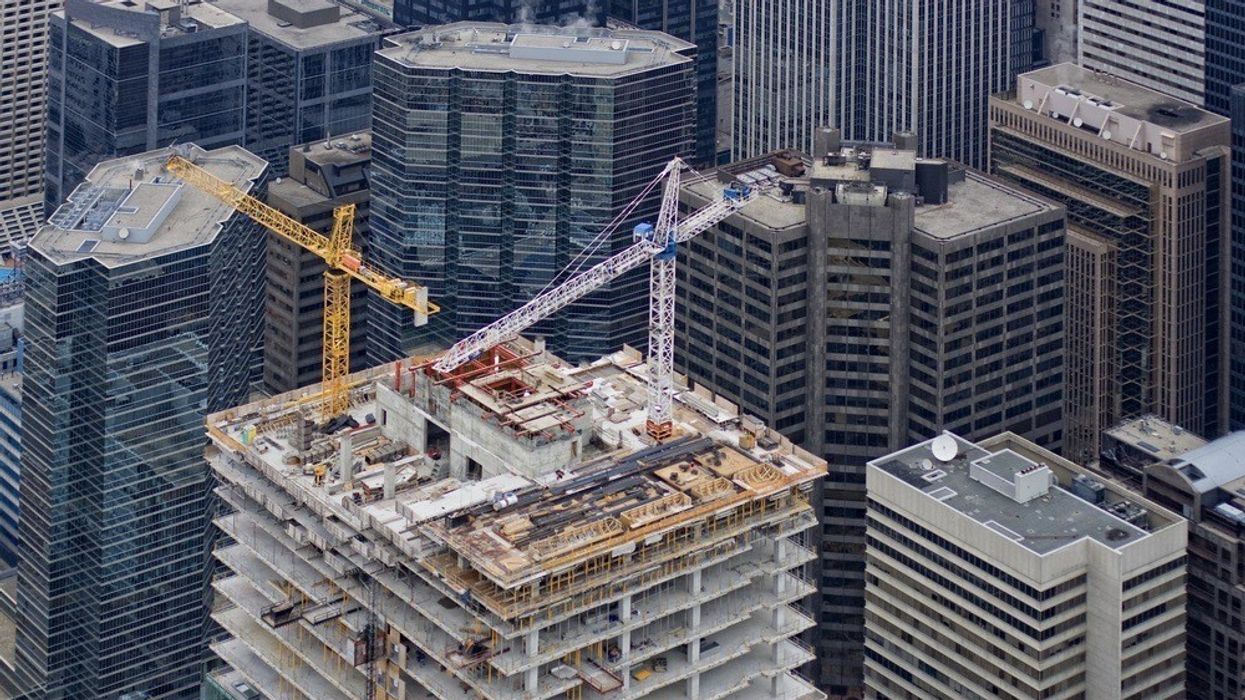Premier Doug Ford has announced another string of COVID restrictions to combat a worsening third wave, including closing down all non-essential construction across the province.
As of Saturday, April 17, all non-essential construction must cease options. According to the provincial government, non-essential construction includes shopping malls, hotels, and office towers.
Speaking at a news conference Friday, the government also said it will be extending Ontario's stay-at-home order for another two weeks.
"As the latest modelling confirms, without taking immediate and decisive action COVID-19 cases will spiral out of control and our hospitals will be overwhelmed," said Premier Ford. "That's why we are making difficult, but necessary decisions to reduce mobility and keep people in the safety of their own homes. We need to contain the spread of this deadly virus, while getting vaccines in as many arms as quickly as possible."
READ: Ontario Hot Spots Where COVID Vaccines Will Soon Be Offered to All Adults (MAP)
The government said only types of construction deemed essential will be allowed to continue operating. According to the Residential Construction Council of Ontario (RESCON), which is the province’s leading association of residential builders, essential construction includes:
- Public infrastructure construction, such as work on health care, long-term care, schools and infrastructure
- Residential construction, including renovations, currently underway
- Site preparation for institutional, commercial, industrial or residential developments, including any necessary excavation, grading, roads or utility infrastructure
- Construction tied to internet or cellular infrastructure
- Maintenance of petrochemical facilities
- Industrial construction related to the production of PPE, medical devices or products that directly combat COVID-19
- Construction on food, beverage or agricultural projects scheduled to be complete before July 2021
- Warehouse or logistics projects currently underway
Effective 12:01 am Saturday, April 17, the government said outdoor gatherings with people outside a person's household will be prohibited, though, people who live alone will be allowed to gather with only one other household outdoors.
The government will also be reducing capacity limits to 25% in all retail settings where in-store shopping is permitted. This includes supermarkets, grocery stores, convenience stores, indoor farmers' markets, other stores that primarily sell food, and pharmacies.
All outdoor recreational amenities, such as golf courses, basketball courts, soccer fields, and playgrounds with limited exceptions, will also be closed.
Police and other provincial offences officers will also have the authority to ask anyone outside their residence to indicate their purpose for leaving home and provide their address. That includes stopping vehicles and potentially issuing tickets up to $750. This additional enforcement tool will only be in effect during the Stay-at-Home order and exclusively to enforce the order.
Effective 12:01 am, Monday, April 19, capacity at religious gatherings, weddings, and funerals will be limited to 10 people. Also beginning Monday, Ford said there will be checkpoints at the provincial borders of Quebec and Manitoba with exceptions for essential travel, including work, medical care, or transport of goods.
All other public health and workplace safety measures for non-essential retail under the province-wide emergency brake, including curbside pick-up and delivery only, will continue to apply.
Inspectors will also visit law offices, accounting firms, and other such locations to check that only essential workers are in the building.
The new restrictions come as Ontario broke its daily COVID-19 case record on Friday, with 4,812 new infections, bringing the province’s total case count to 408,383 since the pandemic started.





















